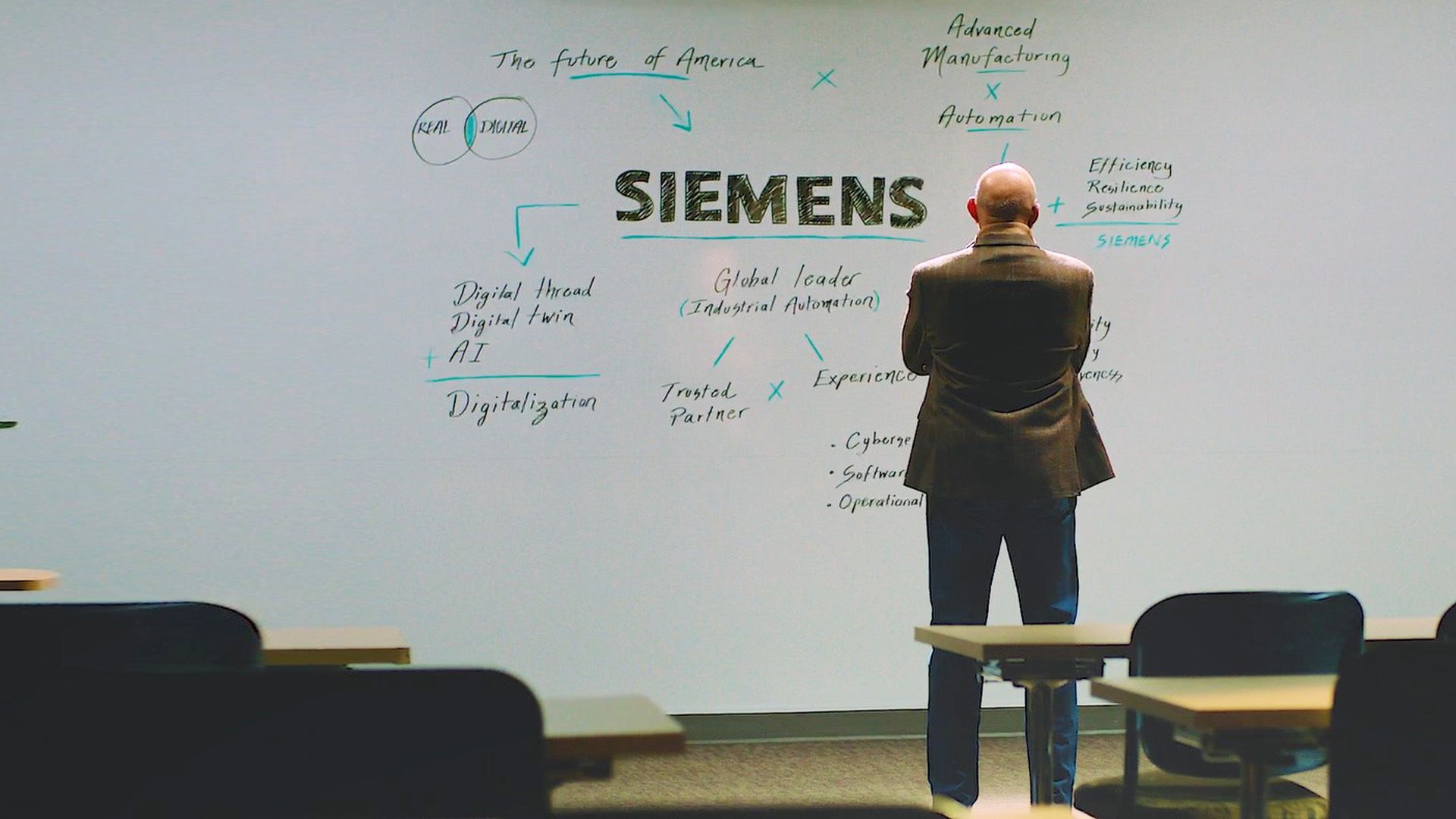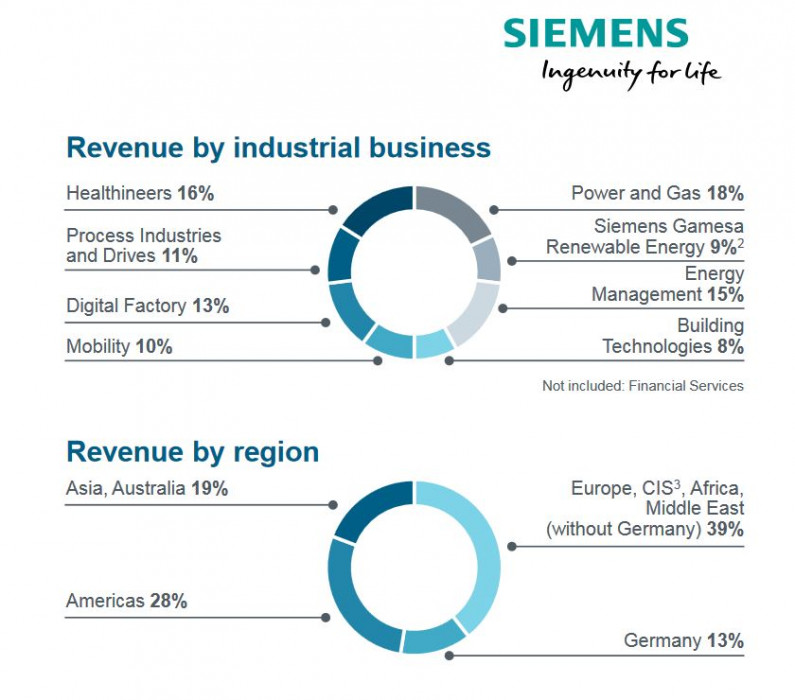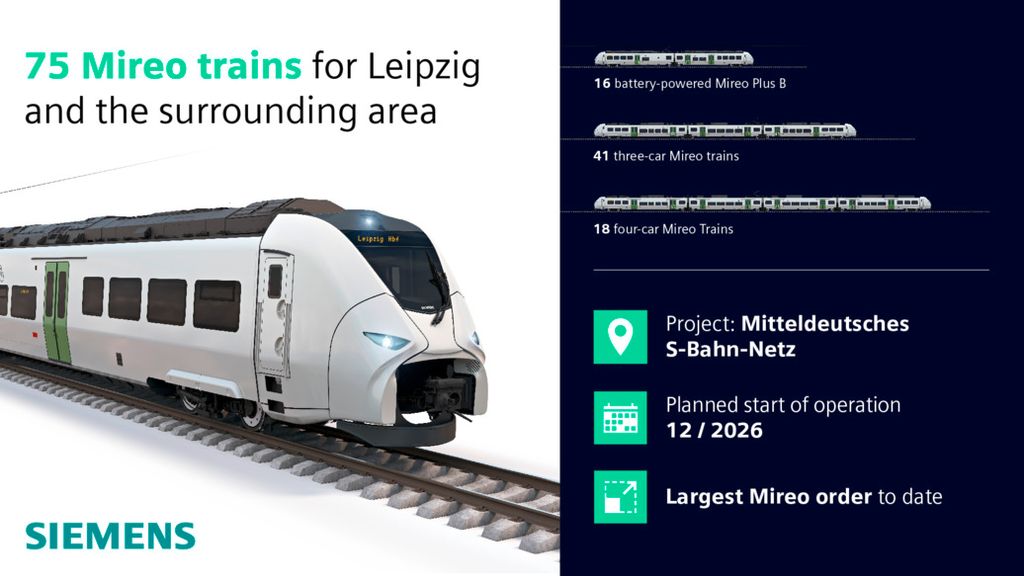
Introduction to Siemens AG
Overview of Siemens as a German multinational technology conglomerate
Siemens AG, based in Germany, stands as one of the largest and most significant technology conglomerates globally. Founded in 1847 by Werner von Siemens and Johann Georg Halske, the company initially focused on electrical engineering and telegraphy. Over the years, Siemens has evolved significantly, expanding its horizons and diversifying its offerings. Today, it operates in over 200 countries and employs approximately 320,000 individuals as of 2023. The company’s multifaceted nature emphasizes its role as an innovator in an array of sectors, including but not limited to automation, energy management, healthcare, and mobility solutions. With such an extensive history, Siemens has positioned itself as a central player in transforming industries and driving advancements in technology across the world.
Focus areas of Siemens in industrial automation, distributed energy resources, rail transport, and more
Siemens AG has honed its focus on several critical sectors that enable modern infrastructure and industrial advancements. One of its core areas is industrial automation, where it provides cutting-edge solutions to streamline production processes, enhance efficiency, and drive innovation within manufacturing environments. By integrating software and hardware, Siemens ensures that manufacturers can adapt to ever-changing market demands while achieving greater operational efficiency.
Another substantial area of focus for Siemens is distributed energy resources. Recognizing the global shift towards renewable energy, Siemens is committed to enabling energy-efficient solutions that make use of resources like wind, solar, and biogas. The company is actively involved in projects that enhance grid stability and support the growing integration of renewable energy sources into power systems. Their expertise in IT/OT convergence further positions them as leaders in bridging operational technology with information technology to optimize resource utilization and energy distribution.
Siemens also makes remarkable contributions to rail transport. With a commitment to sustainability, digitalization, and safety, Siemens Transportation systems deliver advanced rail technologies, including signaling, railway automation, and train control systems. Their focus on smart transportation solutions has made significant strides in modernizing public transport systems and ensuring that they meet the increasing demands of urbanization. This innovation promotes improved passenger experiences while encouraging reduced carbon footprints in public transport systems.
Additionally, Siemens has expanded its reach into healthcare, providing advanced medical equipment and digital health solutions. The company acknowledges the importance of innovation in healthcare and focuses on developing products that enhance patient care and streamline hospital operations. Through collaborations and partnerships, Siemens is at the forefront of creating technologies that improve health outcomes and ensure efficient healthcare delivery.
Beyond these core areas, Siemens actively engages in sustainability initiatives and champions corporate responsibility. The company is dedicated to creating environments that enhance quality of life and protect our planet for future generations. Siemens emphasizes the significance of building resilient supply chains that respond effectively to global challenges, whether related to health, social equity, or environmental impacts.
In summary, Siemens AG’s commitment to innovation across multiple sectors underscores its leadership as a technology conglomerate. By harnessing cutting-edge solutions in industrial automation, distributed energy resources, transportation, and healthcare, Siemens is paving the way for a more sustainable, efficient, and technologically advanced future. As the global landscape continues to evolve, Siemens remains steadfast in its mission to create technologies that not only meet today’s needs but also anticipate and adapt to the future’s challenges.

History of Siemens
Tracing back to the origins of the conglomerate in 1847
Siemens AG’s history is rooted in innovation and technological advancement. The company was founded on October 1, 1847, by Werner von Siemens and Johann Georg Halske. Initially known as Telegraphen-Bauanstalt von Siemens & Halske, the firm focused on improving telegraphy and electrical engineering. Among its first notable achievements was the development of an enhanced version of the Volta Inductor, which played a significant role in the expanding field of electrical communications. This early focus on electrotherapy also led to the production of the Slide Inductor, establishing Siemens as an influential figure in medical technology. Over time, the company expanded its product offerings and began venturing into various sectors, paving the way for incredible growth and a lasting impact on global industries.
Emergence of the present-day corporation in 1966 through mergers
As the landscape of technology and industry evolved, so did Siemens. The combination of several key firms in 1966 marked a significant milestone. On October 1st of that year, Siemens AG was officially formed through the merger of three major companies: Siemens & Halske AG, Siemens Schuckertwerke AG, and Siemens-Reiniger-Werke AG. This merger was a strategic move that not only strengthened Siemens’s position in the market but also completed the company’s post-World War II rebuilding and consolidation efforts. The integration of these enterprises sought to unify their strengths and resources, creating a more efficient and competitive entity in the global market.
This transition was crucial in allowing Siemens AG to diversify its operations across various industries, aligning with the technological advancements of the late 20th century. The consolidated company retained its commitment to innovation while expanding into new sectors, including automation, healthcare, and energy management. Siemens recognized the importance of staying ahead in an increasingly competitive landscape and continued to invest heavily in research and development, driving the future of technology and engineering.
The strategic restructuring also fostered collaboration among different divisions, enabling cross-disciplinary innovation and the creation of cutting-edge solutions. The company’s vision evolved further as global challenges such as energy crises and environmental concerns gained prominence. Siemens AG began prioritizing sustainability, exemplifying its commitment to responsible practices that protect the planet and contribute to society. This shift underscored its dedication to not only advancing technology but doing so in a manner that considers long-term impacts on communities and ecosystems.
Today, Siemens AG stands as a testament to resilience, adaptability, and forward-thinking. Its rich history is characterized by a continuous pursuit of excellence, marked by various technological breakthroughs and expansions in its operational scope. Siemens’s journey from a telegraph company to a global technology powerhouse reflects its ability to navigate changes and seize opportunities in a rapidly evolving landscape.
In summary, the history of Siemens illustrates the importance of innovation and adaptability in achieving success. From its humble beginnings as a telegraph manufacturer to its emergence as a leading conglomerate, Siemens AG continues to shape the future across numerous sectors, including industrial automation, healthcare, and sustainable energy solutions. The incorporation of key companies has strengthened its foundation, allowing it to meet contemporary challenges while adhering to its mission of improving quality of life worldwide. Thus, Siemens AG remains a powerful symbol of technological progress and corporate responsibility in the modern era.

Industrial Automation by Siemens
Role of Siemens as the global market leader in industrial automation
Siemens has established itself as the world’s largest provider of industrial automation solutions. This recognition is due to its commitment to harnessing the latest technologies in order to drive efficiency, resilience, and sustainability in manufacturing processes. By leveraging a comprehensive portfolio that includes cutting-edge digital capabilities and a vast global presence, Siemens empowers manufacturers to adopt innovative solutions that optimize their operations. The company’s strategy focuses on enabling businesses to streamline their processes, ultimately enhancing productivity and promoting sustainable growth. Siemens’ position as a market leader is not merely a reflection of its product offerings; rather, it underscores the importance of strategic partnerships and collaboration in driving forward the advancement of industry standards.
Impact of Siemens’ technologies in industrial processes
Siemens’ influence extends far beyond its market size; the technologies it implements have a profound impact on industrial processes globally. Through the adoption of Industry 4.0 principles, Siemens has facilitated significant transformations in manufacturing. These principles include the integration of IoT, AI, and advanced analytics, enabling manufacturers to create more adaptable and responsive systems. Siemens’ innovative solutions not only enhance operational performance but also contribute to the overall sustainability of the manufacturing sector. This is especially crucial in a time when industries are being called upon to minimize their environmental footprint while meeting the increasing demands of consumers for transparency and ethical practices.
The Company’s commitment to excellence is exemplified by its latest initiative: the development of the Experience Center 4.0 in Erlangen. This state-of-the-art facility aims to make the SIEMENS Digital Enterprise tangible and interactive. It serves as a platform where businesses can witness firsthand the transformative potential of digital technologies. The Experience Center allows visitors to engage with various automation tools and solutions, offering insights into how these advancements can be employed in real-world scenarios. By effectively showcasing its innovations, Siemens promotes a deeper understanding of digital transformation and its benefits for manufacturers.
Furthermore, Siemens’ dedication to industrial automation is evident in its focus on creating resilient manufacturing systems that can withstand the challenges of today’s dynamic market. The company’s technologies facilitate predictive maintenance, reducing downtime and optimizing performance. By implementing smart factories equipped with automation and data analytics, manufacturers can gain valuable insights into their operations, allowing them to respond swiftly to changing needs and enhancing overall productivity.
Siemens is also playing a crucial role in fostering a culture of innovation within the industry. As companies look to remain competitive and relevant in rapidly evolving markets, Siemens underscores the importance of ongoing partnerships and collaborations. The company encourages stakeholders to embrace new technologies and adopt a forward-thinking mindset. This collaborative approach amplifies the potential for groundbreaking developments that can shape the future of industrial automation.
In conclusion, Siemens continues to lead the industrial automation market by providing solutions that drive efficiency, enhance resilience, and prioritize sustainability. Through initiatives like the Experience Center 4.0, the company not only demonstrates its technological advancements but also cultivates an environment where innovation thrives. As global demand for industrial automation rises, Siemens remains at the forefront, empowering businesses to achieve their goals while leading the charge towards a more sustainable and efficient future.

Distributed Energy Resources by Siemens
Contribution of Siemens in the development and implementation of distributed energy resources
Siemens has made significant strides in the realm of distributed energy resources (DER), contributing to the establishment of sustainable and resilient energy systems across various sectors. The company takes a holistic approach, integrating modular and proven DER technology to facilitate faster project delivery and expandability. By focusing on local distributed energy solutions, Siemens enables businesses, municipalities, and large buildings to address the pressing challenges of energy costs, security of supply, and CO₂ reduction. This proactive stance allows industries to transform these challenges into manageable, long-term strategies. Siemens comprehensively understands the complexities of energy distribution and works diligently to stabilize the fluctuating power generated from renewable sources, ensuring a more reliable energy supply. Additionally, Siemens promotes affordable ways to decarbonize energy systems, aiming for up to 50% reduction in CO₂ emissions by transitioning from coal-based to gas power generation.
Key projects and initiatives in the field of distributed energy resources
A prime example of Siemens’ commitment to DER can be observed in its strategic partnerships with organizations like RWE, leading to the development of innovative IT systems such as the RWE Smartpool. This system enhances the capabilities of distribution grid operators by enabling better integration of distributed energy generating sources. Siemens undertakes various projects globally, demonstrating its expertise in creating customized energy solutions designed to meet local needs while also addressing global energy sustainability goals.
An impressive array of projects showcases Siemens’ dedication to advancing DER technology. These initiatives include developing combined heat and power (CHP) systems that achieve fuel efficiency levels of up to 90% through effective heat utilization. CHP systems not only bolster energy security but also foster economic viability and environmental sustainability, making them an essential part of Siemens’ DER offerings. Through these technologies, companies and municipalities can optimize their energy systems, enhancing overall performance while reducing their impact on the environment.
Moreover, Siemens supports the transition to a decentralized energy landscape, where consumers become prosumers by generating their own energy. The company prioritizes solutions that provide flexibility, such as battery storage systems and microgrids, which empower users to manage and utilize their energy more efficiently. With these advancements, Siemens is paving the way for a future where energy independence and sustainability go hand in hand.
The integration of IoT, AI, and advanced analytics within Siemens’ DER framework further showcases the company’s focus on innovation. By utilizing smart technologies, Siemens enables a more intelligent energy distribution model that enhances grid reliability and optimizes energy consumption. Moreover, the company’s commitment to research and development ensures that it remains at the forefront of industry advancements, providing its clients with state-of-the-art solutions that meet their evolving needs.
Ultimately, Siemens’ contributions to distributed energy resources are pivotal in shaping a sustainable future. Through its comprehensive portfolio of energy solutions and strategic partnerships, the company addresses pressing energy challenges, promotes innovative technologies, and fosters cooperation across industries. As Siemens continues to champion DER innovations, it not only reinforces its position as a global leader in energy technology but also plays a vital role in driving the transition towards a cleaner, more reliable energy landscape for all. In doing so, Siemens exemplifies the integration of sustainable practices with cutting-edge technology, ensuring a beneficial impact on both the environment and the energy sector.

Rail Transport Solutions by Siemens
Siemens’ involvement in the rail transport sector
Siemens Mobility plays a pivotal role in the global rail transport sector, offering a comprehensive range of solutions that cover various types of rail systems. The company enables operators to address the intricacies of today’s passenger and freight transportation requirements through innovative technology and tailored solutions. Their involvement encompasses trams, light rail, metro systems, and various types of trains, including commuter, regional, and long-distance options. With a strong emphasis on enhancing safety, efficiency, and sustainability, Siemens Mobility consistently engages in projects that transform mobility. They have a storied track record of over 50 complete turnkey solutions installed worldwide, showcasing their capability to manage complex rail projects from inception to delivery.
Incorporating smart innovations, Siemens enhances the overall experience of commuters and operators alike, ensuring that mobility is not just reliable but also an enjoyable journey. By offering state-of-the-art rail technologies, Siemens is setting new benchmarks in connectivity, punctuality, and performance, thus marking its presence as a leader in the industry.
Innovations and technologies offered by Siemens for rail transport systems
Siemens Mobility takes pride in developing cutting-edge technologies that redefine rail transport. The company focuses on electrification, automation, and digitalization to improve operational effectiveness. One significant aspect is their advanced signaling and control systems, which ensure safe and efficient train operation. These systems enhance capacity while minimizing delays, making commuter travel more predictable and seamless.
Moreover, Siemens is at the forefront of the trend towards sustainable rail transport. Their electrification solutions facilitate a greener operation by reducing reliance on fossil fuels. With the integration of energy-efficient technologies, trains can operate with lower energy consumption and reduced carbon emissions. Siemens also champions the deployment of battery-electric trains, marking a significant advancement in achieving sustainability goals within the rail industry. By transitioning to electric systems, the environmental footprint of rail operations is significantly diminished.
To further enhance efficiency, Siemens is leveraging the Internet of Things (IoT) and data analytics. By utilizing real-time data for predictive maintenance, operators can schedule repairs and upgrades proactively, reducing downtime and operational costs. Their digital rail systems are designed to integrate seamlessly with existing infrastructure, enabling easy adaptation while maintaining high safety standards. This integration is central to providing a cohesive experience to both passengers and freight operators.
Additionally, Siemens invests extensively in research and development to ensure it stays ahead of industry trends. Their commitment to innovation allows the company to pioneer solutions that meet the evolving needs of the rail transport sector. Examples include automated train operation (ATO) systems, which enhance the safety and efficiency of train services by reducing human error and optimizing operational processes.
Siemens’ focus on customization ensures that solutions are tailor-made to suit the specific requirements of each operator, thus allowing for greater flexibility and responsiveness in a fast-changing environment. Their established partnerships with various industry stakeholders are testament to their dedication to creating holistic transportation solutions that cater to diverse rail networks around the world.
In conclusion, Siemens Mobility stands as a beacon of innovation and reliability in the rail transport sector. By offering a comprehensive portfolio that includes automation, electrification, and digital solutions, they empower operators to meet the challenges of modern transportation effectively. Through their ongoing commitment to sustainability and technological advancement, Siemens is not just reshaping the rail industry but is paving the way for a future where mobility is accessible, efficient, and environmentally friendly.

